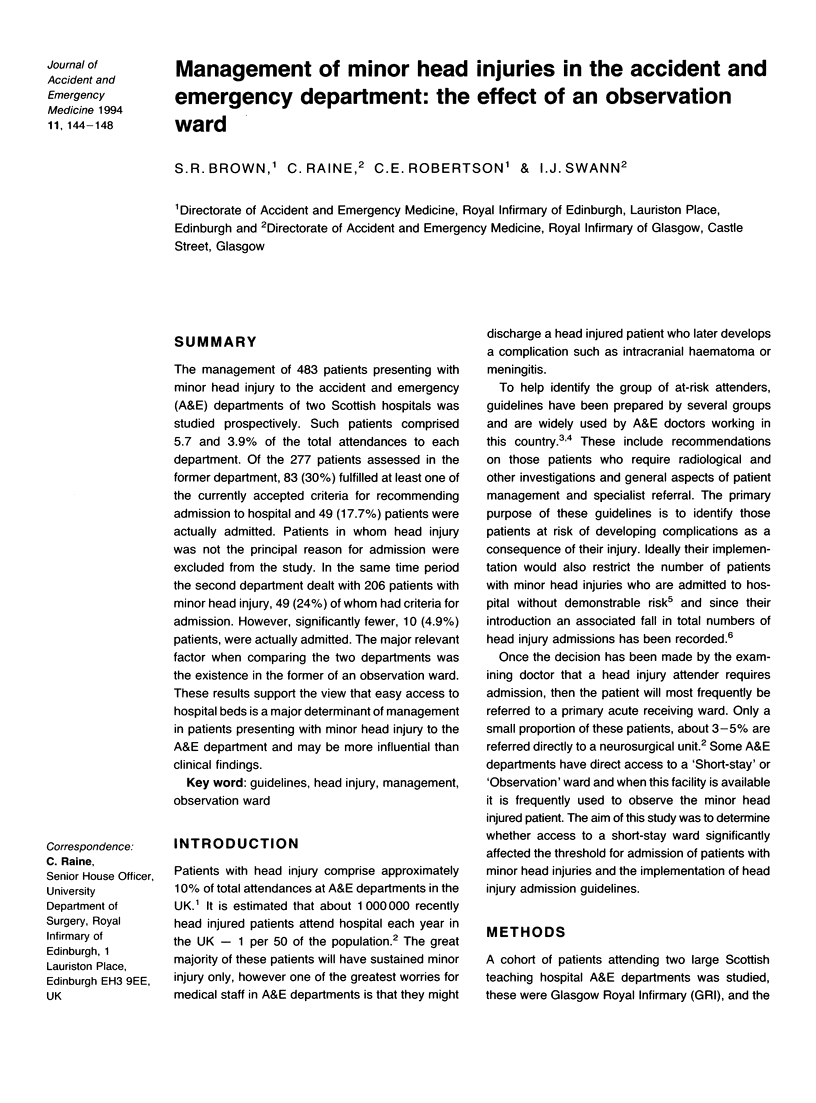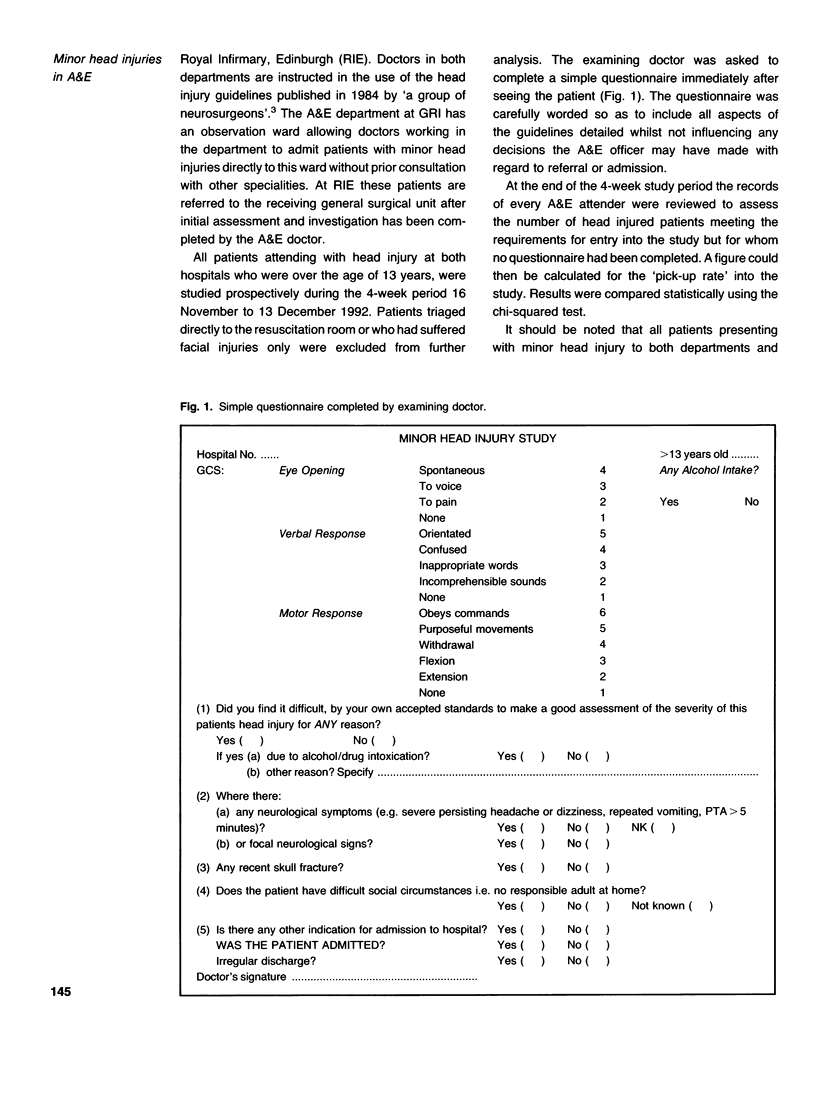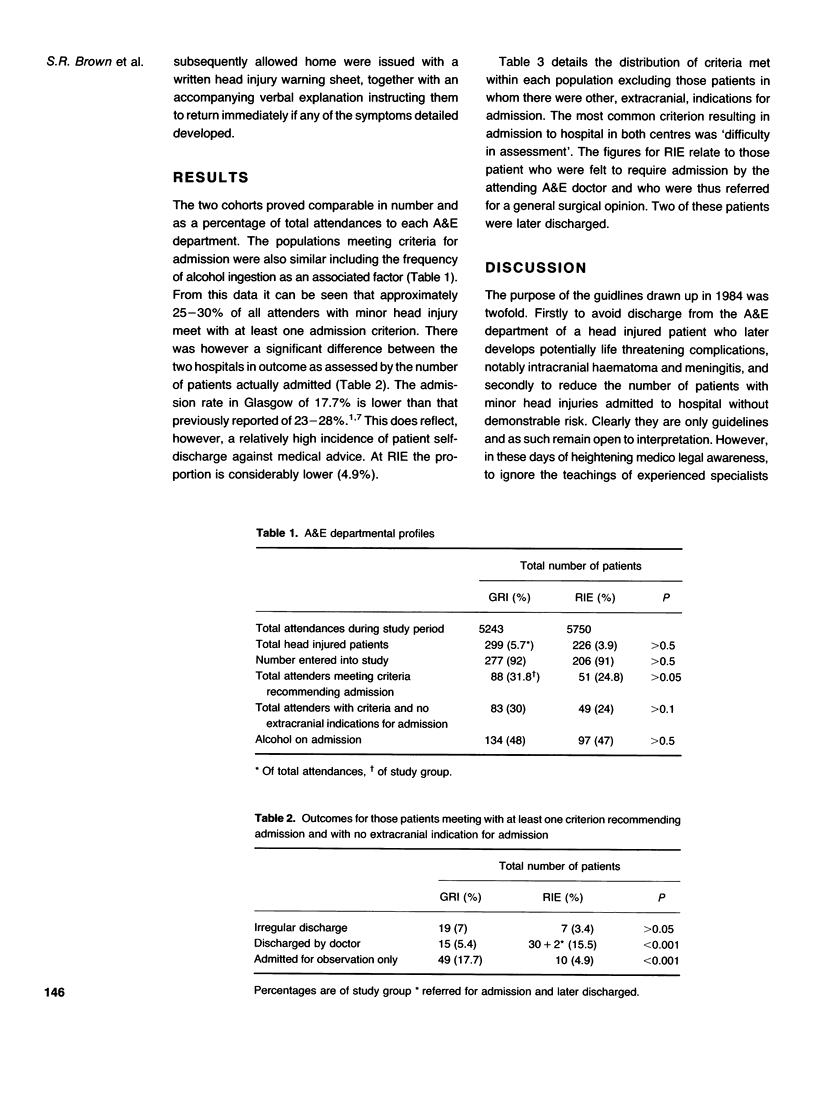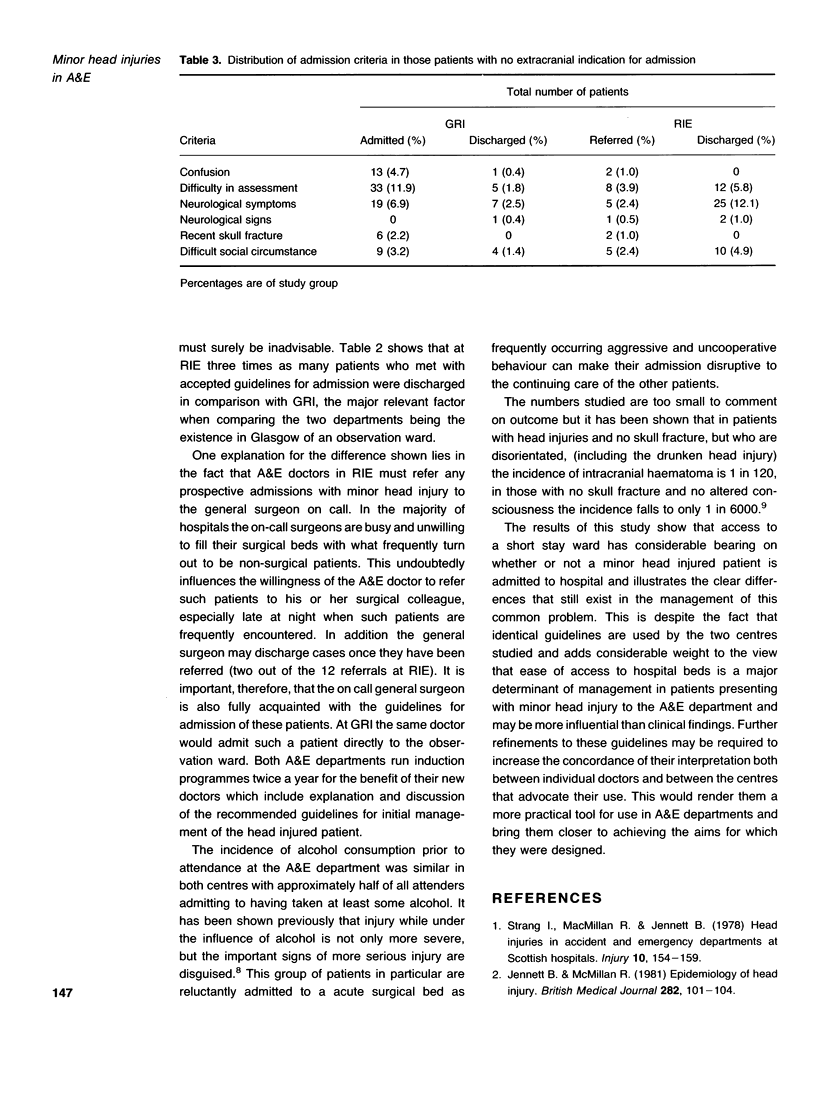Abstract
The management of 483 patients presenting with minor head injury to the accident and emergency (A&E) departments of two Scottish hospitals was studied prospectively. Such patients comprised 5.7 and 3.9% of the total attendances to each department. Of the 277 patients assessed in the former department, 83 (30%) fulfilled at least one of the currently accepted criteria for recommending admission to hospital and 49 (17.7%) patients were actually admitted. Patients in whom head injury was not the principal reason for admission were excluded from the study. In the same time period the second department dealt with 206 patients with minor head injury, 49 (24%) of whom had criteria for admission. However, significantly fewer, 10 (4.9%) patients, were actually admitted. The major relevant factor when comparing the two departments was the existence in the former of an observation ward. These results support the view that easy access to hospital beds is a major determinant of management in patients presenting with minor head injury to the A&E department and may be more influential than clinical findings.
Full text
PDF




Selected References
These references are in PubMed. This may not be the complete list of references from this article.
- Jennett B., MacMillan R. Epidemiology of head injury. Br Med J (Clin Res Ed) 1981 Jan 10;282(6258):101–104. doi: 10.1136/bmj.282.6258.101. [DOI] [PMC free article] [PubMed] [Google Scholar]
- Mendelow A. D., Campbell D. A., Jeffrey R. R., Miller J. D., Hessett C., Bryden J., Jennett B. Admission after mild head injury: benefits and costs. Br Med J (Clin Res Ed) 1982 Nov 27;285(6354):1530–1532. doi: 10.1136/bmj.285.6354.1530. [DOI] [PMC free article] [PubMed] [Google Scholar]
- Mendelow A. D., Teasdale G., Jennett B., Bryden J., Hessett C., Murray G. Risks of intracranial haematoma in head injured adults. Br Med J (Clin Res Ed) 1983 Oct 22;287(6400):1173–1176. doi: 10.1136/bmj.287.6400.1173. [DOI] [PMC free article] [PubMed] [Google Scholar]
- Miller J. D., Jones P. A., Dearden N. M., Tocher J. L. Progress in the management of head injury. Br J Surg. 1992 Jan;79(1):60–64. doi: 10.1002/bjs.1800790122. [DOI] [PubMed] [Google Scholar]
- Strang I., MacMillan R., Jennett B. Head injuries in accident and emergency departments at Scottish hospitals. Injury. 1978 Nov;10(2):154–159. doi: 10.1016/s0020-1383(79)80084-4. [DOI] [PubMed] [Google Scholar]
- Swann I. J., MacMillan R., Strong I. Head injuries at an inner city accident and emergency department. Injury. 1981 Jan;12(4):274–278. doi: 10.1016/0020-1383(81)90200-x. [DOI] [PubMed] [Google Scholar]
- Weston P. A. Admission policy for patients following head injury. Br J Surg. 1981 Sep;68(9):663–664. doi: 10.1002/bjs.1800680917. [DOI] [PubMed] [Google Scholar]


